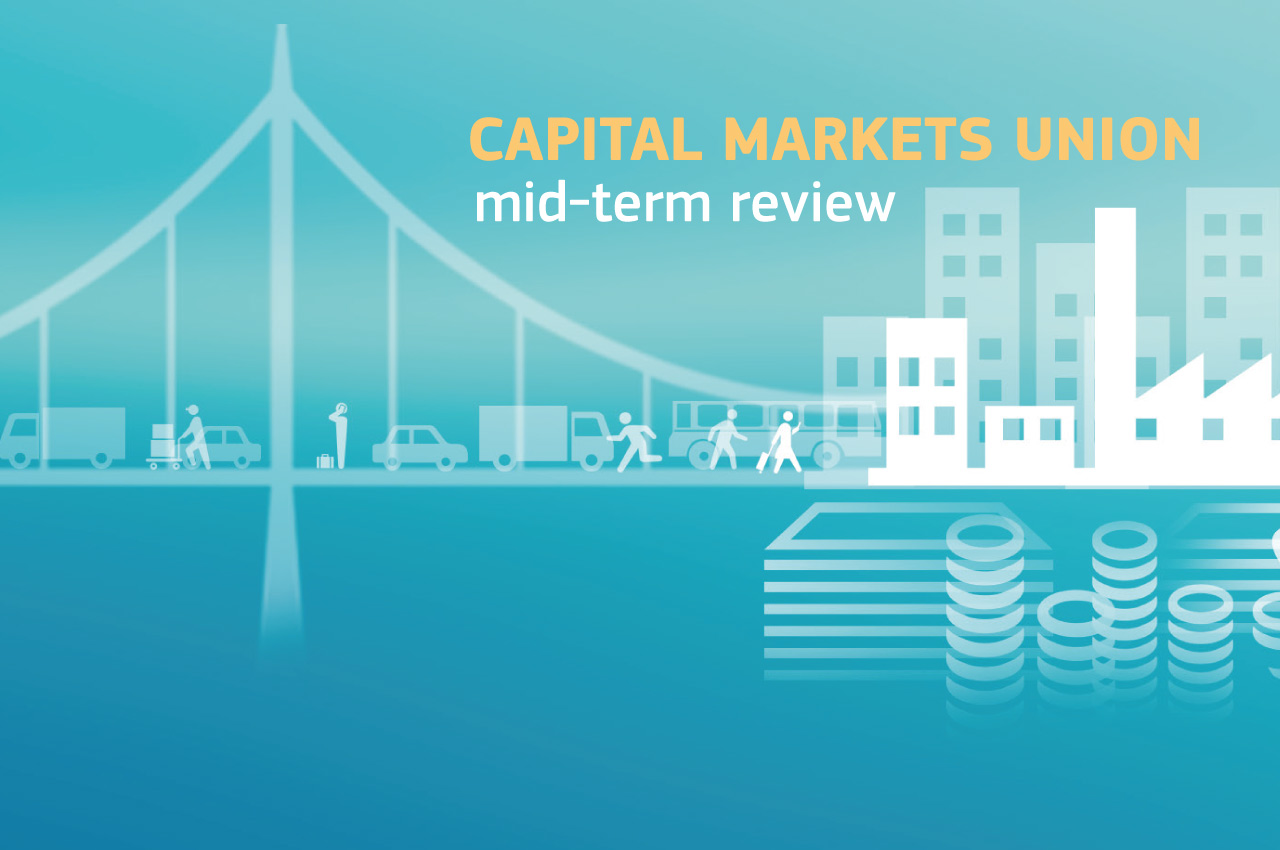Capital Markets Union mid-term review

Related topics
Capital Markets Uniondate: 28/06/2017
About two thirds of the commitments made in the 2015 Capital Markets Union action plan have been delivered, according to a mid-term review unveiled in Brussels on 8 June, 2017. As part of the review, the European Commission also announced a number of new initiatives intended to reinforce the initial plan and respond to new challenges.
Unlocking funding for Europe's growth
The Capital Markets Union is a key component of the EU's Investment Plan for Europe, which is designed to boost European investment and create jobs and economic growth. From the start, the aim of Capital Markets Union has been to get money moving more freely around the EU and make it easier for companies to access capital and for individuals to invest their money in new ways.
Of the 33 measures announced at the launch of the Capital Markets Union action plan in September 2015, 20 have been delivered. For instance the Commission, together with the European Parliament and the Council, have concluded the legislative procedure for a modernised prospectus regime, making access to capital markets easier especially for SMEs. They have also agreed on the revision of rules to strengthen venture capital and social entrepreneurship and have reached a deal to restart securitisation markets. As part of the CMU commitments, the Commission is also unveiling measures in the mid-term review to promote long-term investment through a review of prudential calibration for investments in infrastructure corporates. This means insurers will have to hold lower capital against less-risky investments. In addition, it is publishing the results of a study on tax incentives for venture capital and business angels (see separate articles).
Now the Capital Markets Union needs to be revamped, to make it more targeted and ambitious and help it meet new challenges. In particular, "faced with the departure of the UK, we need to step up our efforts to build an EU-27 capital market engine that can power EU investment," EU Commission President Jean-Claude Juncker said at the launch of the mid-term review. "The CMU Mid-term Review makes clear that we have understood the scale of the challenge and are determined to rise to it."
New actions
The review reinforces the initial action plan with nine new actions, fueled in no small part by the replies to a public consultation in January 2017. There is, for example, a commitment to enhance the supervisory framework for integrated capital markets. Many respondents to the consultation felt there was a need for more regulatory harmonisation and convergence in order to overcome cross-border barriers. Consequently, later on this year the Commission will propose amendments to the functioning of the European Securities and Markets Authority (ESMA) and the other European Supervisory Authorities (ESAs) to promote the effectiveness of consistent supervision across the EU and beyond.
The consultation results also revealed that, while the EU has done a lot to make it easier for companies to raise capital on public markets, a proportionate review was needed of the still too-burdensome obligations sometimes placed on issuers, especially SMEs. So the Commission will look at ways to alleviate regulatory requirements for listed SMEs. This could lead to a proposal for an 'EU Small Listed Companies Act' in the first half of 2018.
Financial technology (FinTech), and how it can contribute to deepening and broadening EU capital markets, is another priority area in the mid-term review. New technologies have already been shown to play an important role in overcoming some of the current barriers and gaps in retail financial services. The Commission will assess the case for an EU licensing and passporting framework for FinTech activities by the end of 2017. It will also look at ways to reorient private capital flows to more sustainable investment, in order to strengthen the EU's leadership in the area of sustainable finance.
Read more on the Capital Markets Union action plan
